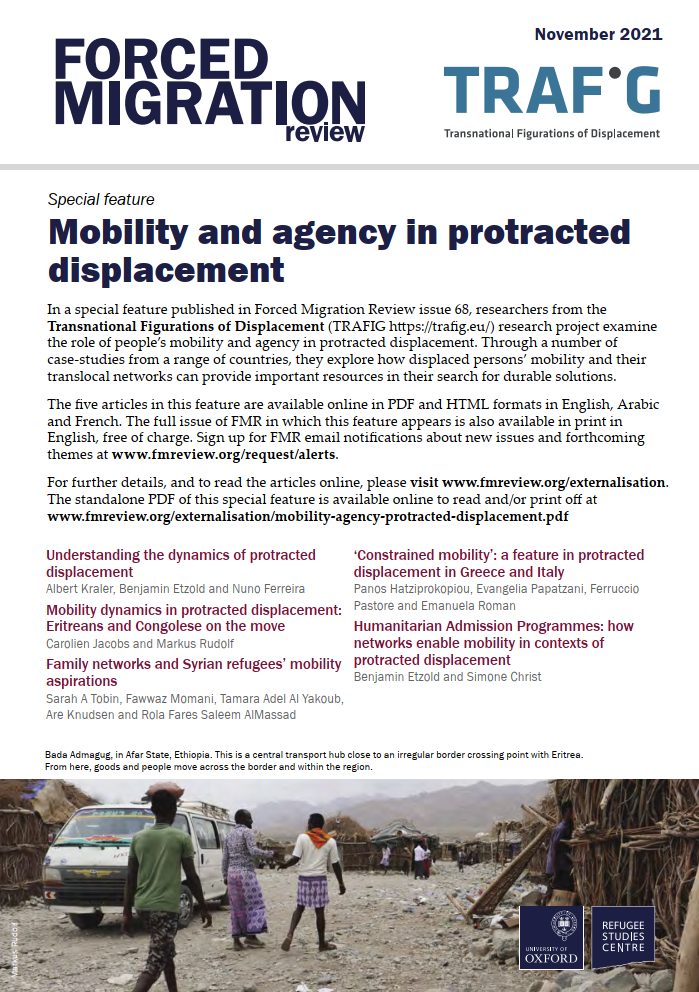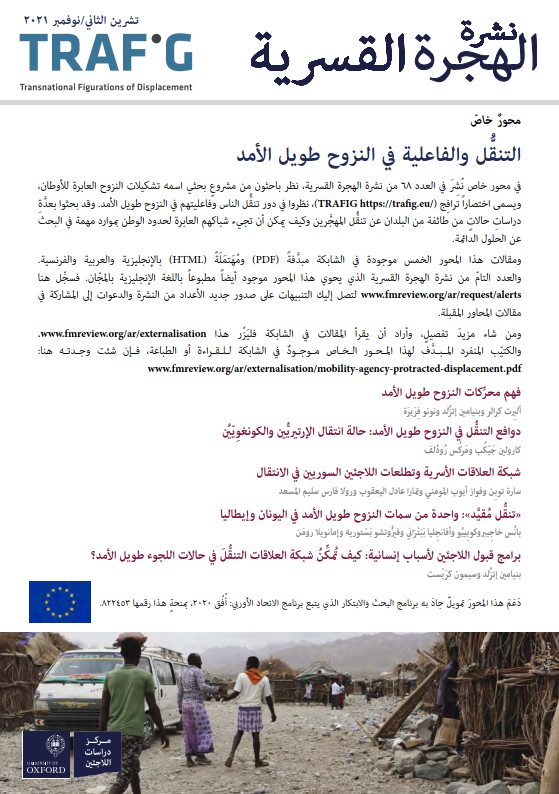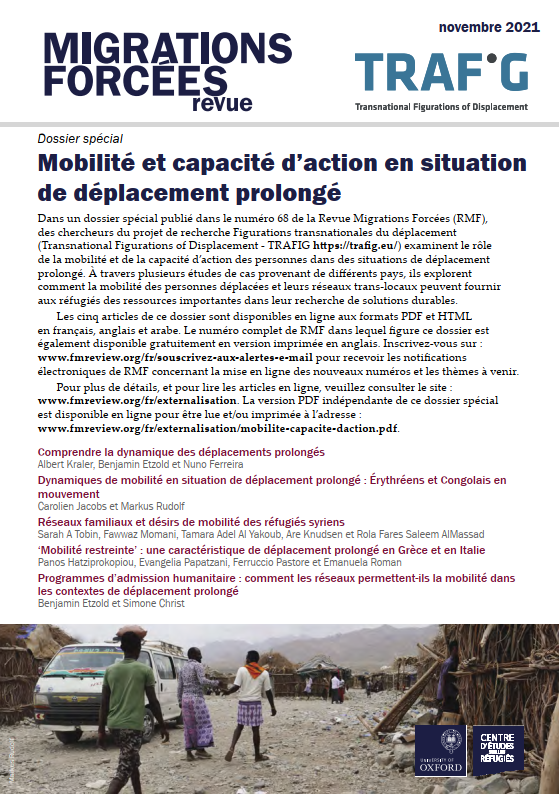Mobility and agency in protracted displacement
Special feature in the Forced Migration Review
FMR 68, November 2021
Available in English, French and Arabic
Issue 68 of the Forced Migration Review includes a special feature on mobility and agency for those living in protracted displacement, produced in collaboration with TRAFIG.
Content
- "Understanding the dynamics of protracted displacement" by Albert Kraler (Danube University Krems), Benjamin Etzold (BICC) and Nuno Ferreira (University of Sussex)
Displaced persons’ mobility and their translocal networks can provide important resources in the search for durable solutions.
- "Mobility dynamics in protracted displacement: Eritreans and Congolese on the move" by Carolien Jacobs (Leiden University) and Markus Rudolf (BICC)
Millions of Eritreans and Congolese find themselves in situations of protracted displacement. A more nuanced understanding of how physical and social mobility affects their daily lives is crucial to developing more effective tailor-made interventions.
- "Family networks and Syrian refugees’ mobility aspirations" by Sarah A Tobin (Chr. Michelsen Institute), Fawwaz Momani (Yarmouk University), Tamara Adel Al Yakoub (Yarmouk University), Are Knudsen (Chr. Michelsen Institute) and Rola Fares Saleem AlMassad (Yarmouk University)
Syrian refugees’ aspirations to move contradict the notion that those refugees who are ‘stuck’ in displacement are passive victims without agency. Rather, in the absence of viable options for physical mobility, refugees may still engage in aspirations to ‘move on’ even when they are not able to do so physically.
- "‘Constrained mobility’: a feature in protracted displacement in Greece and Italy" by Panos Hatziprokopiou (Aristotle University of Thessaloniki), Evangelia Papatzani (Aristotle University of Thessaloniki), Ferruccio Pastore (FIERI) and Emanuela Roman (FIERI)
People living in protracted displacement in Italy and Greece are frequently more mobile than is generally recognised in public discourse and policy.
- "Humanitarian Admission Programmes: how networks enable mobility in contexts of protracted displacement" by Benjamin Etzold (BICC) and Simone Christ (BICC)
Recent research explored how refugees make use of their networks to escape from protracted displacement. Germany’s Humanitarian Admission Programmes have been able to provide legal ‘complementary’ pathways for Syrian refugees who had transnational ties. The effectiveness and reach of these schemes, however, are constrained by various factors.
The Forced Migration Review issue 68 is available in two formats: a 68-page magazine and a 6-page Editors’ briefing, both online at www.fmreview.org/externalisation.
The standalone 20-page PDF of the TRAFIG feature on 'mobility and agency in protracted displacement' is available in English as well as Arabic and French.
This feature has been supported with funding from the European Union’s Horizon 2020 research and innovation programme under grant no 822453.
The views and opinions expressed do not necessarily reflect the opinion of the TRAFIG Consortium or the European Commission (EC). TRAFIG is not responsible for any use that may be made of the information contained therein.


